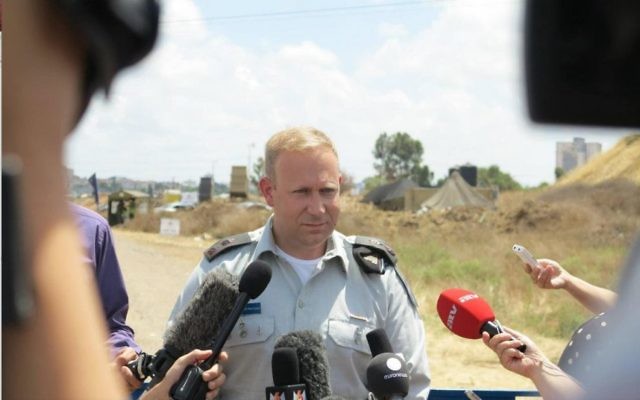Selling the IDF to the world
FOREIGN journalists in Israel are there “to do the story about Palestinian suffering first and foremost and blame that suffering on Israel”, according to former Israeli Defence Forces (IDF) international spokesman Lt Col (Ret) Peter Lerner.
FOREIGN journalists in Israel are there “to do the story about Palestinian suffering first and foremost and blame that suffering on Israel”, according to former Israeli Defence Forces (IDF) international spokesman Lt Col (Ret) Peter Lerner.
Lerner spoke to The AJN last week ahead his of appearance at a United Israel Appeal (UIA) public event at a North Shore location next Tuesday, where he’ll address the topic “Middle East turmoil: challenges facing Israel”.
The British-born oleh spent 25 years in the IDF, most recently as international spokesperson, before retiring last year.
He described that role as “trying to make Israel’s situation more clear” for audiences abroad.
“The situation is a challenging one for any military, and we’re doing our very best to limit the civilian price despite our our enemies’ intentional efforts to exacerbate that situation,” he said.
He said communicating that message is made more complex by the fact that the domestic Israeli audience has different requirements.
“The public wants to know we will beat the enemy. [For example] the enemy is challenging the security fence around Gaza, we have to beat that,” he said.
“More needs to be done in order to be a bit more sophisticated in the balance between home and abroad, [the latter] usually is magnified when its translated from Hebrew into English.”
He agreed there is a double standard in the level of exposure Israel gets compared to other conflicts in the world.
“The media feels free to operate here, feels free to question. That is something Israel has to deal with because it is the price of democracy,” he explained.
He said it had been an uphill struggle pushing positive stories or stories about Hamas, Hezbollah and other topics.
“I always knew the journalists aren’t necessarily there to do that story, they’re there to do the story about Palestinian suffering first and foremost and blame that suffering on Israel,” he said.
“They don’t want to question that because the nature of media today is the nature of reinforcing existing preconceptions … these are the rules of the game and [the challenge is] how do you influence that despite that situation?”
Regarding Israel’s current security position, Lerner said there were no existential threats but pointed to a “huge level of unpredictability” in a strategic sense.
He said he was excited about his first visit to Australia and praised the work UIA does in Israel’s less privileged communities.
“It’s heartwarming, it’s nice and it helps the state of Israel,” he said.
More information: www.uiaaustralia.org.au/our-events
GARETH NARUNSKY


comments